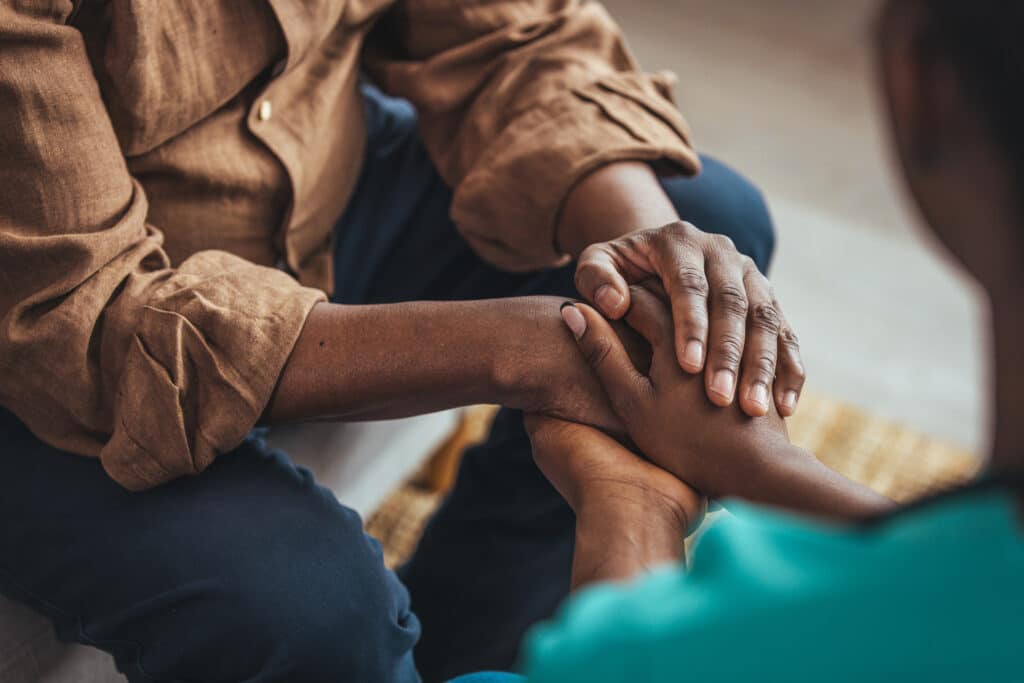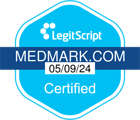Recovery from addiction or behavioral health disorders is never easy and affects people and their loved ones every single day. September is National Recovery Month, a time when we can recognize those who have achieved recovery or are currently working toward it.
If you are unfamiliar with what National Recovery Month is, we want to help you learn more about the history and significance of National Recovery Month and how you can spread the message of recovery and show your support.
What Is National Recovery Month and Why Does It Matter?
National Recovery Month happens in September every year in the United States. The entire month is dedicated to teaching people about substance use and behavioral health and honoring three different groups:
- Healthcare professionals who help people recover from addiction and behavioral health disorders
- Individuals who have struggled or are currently struggling with addiction
- People who live with behavioral health disorders
The month not only recognizes the efforts of these groups but also reminds people there is hope for recovery. Individuals struggling with addiction or behavioral health disorders and their loved ones can see they are not alone and are surrounded by others in similar situations. It also allows people to hear success stories and make connections with those in recovery who can become their support system.
A Brief History of National Recovery Month
National Recovery Month was established by the Substance Abuse and Mental Health Services Administration (SAMHSA) but began with a different name and purpose. In 1989, they started “Treatment Works! Month” to honor healthcare professionals who helped people recover from addiction.
In 1998, they renamed it “National Alcohol and Drug Addiction Recovery Month” and expanded its purpose to recognize individuals with substance use disorders.
In 2011, it finally became National Recovery Month, which now honors individuals in recovery from addiction or behavioral health disorders and the healthcare professionals who work with them.

How to Spread Awareness About Recovery
Many people may assume they do not need to get involved because they do not know anyone with an addiction. In reality, at least ten percent of adults in the United States will have a drug use disorder in their lives. You may not realize it, but some of your close friends or family members make up part of this group.
Because these struggles are more common than you may think, it is important to understand these issues and take some time to help spread awareness. There are a few ways you can get started:
1. Join the Conversation
Do your research and find local groups who meet to discuss these issues or share their stories.
2. Educate Those Around You
There is a lot of stigma associated with terms like “addiction” or “mental illness,” so teach those close to you to withhold judgment. Help them understand how common these issues are and how admirable it is to achieve recovery.
3. Spread the Word
Use your voice and social media platforms to share recovery month messages and events. You will introduce National Recovery Month to new audiences and potentially boost event attendance.
How to Support Someone in Recovery
If your loved one is working toward recovery, they need your support. You may not be familiar with the best ways you can help them, so here are four ideas to get you started:
1. Educate Yourself About Recovery
The best thing you can do to support someone in recovery is to educate yourself about what they are going through. Doing some research to understand their situation and what people in recovery experience will allow you to sympathize with their struggle.
2. Avoid Judgment
Recovery is often extremely painful emotionally, mentally, and physically, so avoid judgment and offer support, love, and sympathy instead. It is not your place to judge how they ended up in this situation, just support them as they work through it.
3. Show Up for Them
If you want your loved one to feel supported, ask them when and where they would like you to show up. You can be there for appointments with their healthcare providers or attend support groups where people share their recovery stories. If your loved one wants you there, you can even attend their therapy sessions.
4. Let Them Share Their Story
Many people going through recovery want to talk about what they are feeling and experiencing. Be a listening ear and let them express themselves. Try not to interject or share your experience, just let them talk.
MedMark Can Help You Through Recovery
National Recovery Month helps people spread awareness, support each other, and find resources to help themselves. The recovery process should never be done alone, and thanks to MedMark Treatment Centers, you or your loved one will always have the professional help they need.
Our team of experienced healthcare providers knows how to help people working toward opioid addiction recovery. If you or someone you care about needs help on the road to recovery, reach out to MedMark today and see how we can help people reach their recovery goals.




